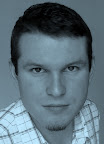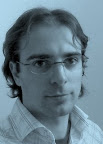Finance is important for economic development. Economists of all stripes and colors consistently find support for this thesis, although they argue loudly on what makes finance work and prevents them form collapsing in a spectacular crises. The EU10 experience in last 20 years actually support this view; finance were key to successful transformations in new Europe, but it has also seen its share of systemic meltdowns almost in every single country.
In EU10 finance means banks. Although financial markets keep developing, they are dominated by banks themselves and this is unlikely to change. The EU10 banking sectors developed towards the universal banking model that will keep banks in the center of economic affairs.
EU10 banking sectors are rather unique. Between 60 and 90 percent of banking sector assets are controlled by a few foreign strategic owners. Although other emerging markets are catching up, nowhere else is the role of transnational banks so profound. This brings a host of questions worth exploring. Does it matter that banks are foreign controlled? Probably not, but the first crisis will test this proposition. Do banks contribute towards economic development? They do, but less than traditional national banks used to; they increasingly finance mortgages and consumer loans, whereas investments are FDI financed (or come as cross-border intra-firm finance).
Is the contagion form the current financial crisis going to get EU10 banks into troubles? Probably not. Can local (host-country) regulators ensure prudential behavior of transnational banks? Probably not; although they remain responsible for safety and integrity of banks in their jurisdiction, they have little leverage over large banks and their home-country supervisors in other EU countries. Then, should the banking regulatory regime switch to supra-national EU level? Probably yes.
These are just some question in the development - finance - regulation&governance nexus, that I explore in my research and thus would explore in this blog. Looking forward to your comments.
Zdenek Kudrna
May 9, 2008
Wecome to Banking and Finance Section
Subscribe to:
Post Comments (Atom)




No comments:
Post a Comment